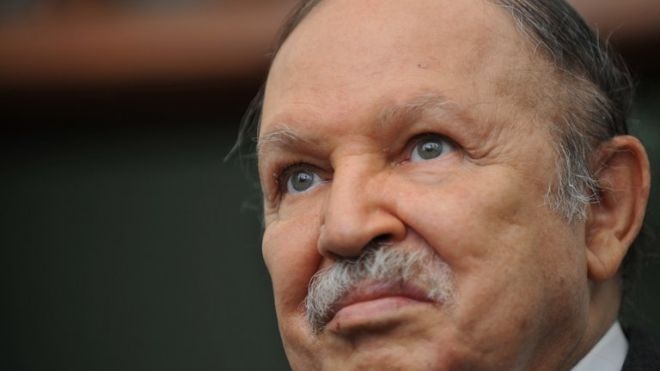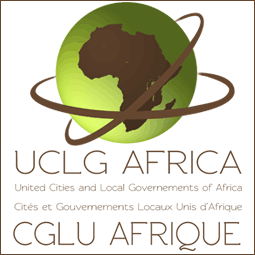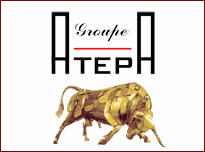Algiers: Algeria: President Reshuffles Cabinet
2013/09/20

Just months ahead of the Algerian presidential elections, Abdelaziz Bouteflika made key changes to his cabinet on Wednesday (September 11th).
Under the reshuffle announced by President Bouteflika, General Ahmed Gaid Salah will serve as both deputy defence minister and army chief.
Constitutional Council Chairman Tayeb Belaiz replaces Dahou Ould Kablia as interior minister. Ramtane Lamamra is the new foreign minister, while Tayeb Louh swaps his labour ministry position for the justice portfolio.
Prime Minister Abdelmalek Sellal retains his post.
In his initial statement next the cabinet reshuffle, Prime Minister Sellal said that the move was intended to spark new dynamism for projects on President Bouteflika's platform.
Opposition parties, however, said the decision was meaningless.
According to National Liberation Front (FLN) Secretary-General Amar Saïdani, the new cabinet was "a government of technocrats" with field men appointed to lead a number of ministries and make Bouteflika's reforms a success.
Movement of Society for Peace (MSP) chief Abderezzak Mokri said on his Facebook page that rather than a cabinet change, the country really needed political reforms, good governance and free and equitable elections.
"It is a repetition of previous lists because the governments are not the result of correct elections and are away from popular legitimacy," commented Djahid Younsi, secretary-general of the El-Islah movement.
For Algeria's Ennahda party, the reshuffle was a marginal measure away from the real political change that the people desired, particularly as it kept ministers who have failed in running their sectors.
Citizens want a transparent, credible presidential election, the Islamist party added.
Meanwhile, most political and media analyses focused on President Bouteflika's decision to appoint his army chief, General Ahmed Gaid Salah, as deputy defence minister.
According to journalist Mohamed Adnan, Salah's new role aims to further other recent decisions by the president, inclunding placing the army's intelligence and security departments under the command of the chief of staff.
Noting the growing instability in Libya and Tunisia, the reporter suggested that the president sought "to appoint a confidante to run security affairs at a time at the same time as security threats are mounting on the border", Adnan said.
"Before that appointment, President Bouteflika received the army commander in additional than one occasion and tasked him with securing the Algerian border before appointing him as deputy defence minister," he told Magharebia.
"Bouteflika has kept such a post for himself in recent years, but this time opted to give it to a confidante, the army's chief of staffs, who is responsible for running all security operations against terrorist groups," he said.
Naming Gaid Salah as deputy defence minister gave Bouteflika's confidante "broad and exceptional powers, thus consolidating Salah's political and military standing", Ennahar said.
The newspaper linked the appointment to "successes made" in recent years, particularly the Algerian military intervention to end the terrorists' siege at the In Amenas gas complex last January.
- Comments
- Related Articles
-
China signs deal to produce 10,000 vehicles per year in Algeria
2013/11/13 Chinese national manufacturer FAW is to build an assembly plant in Algeria producing 10,000 vehicles per year under an agreement signed with private Algerian firm Arcofina, the company's CEO said. The transaction provides for an initial investment of five billion dinars ($61 million), Arcofina CEO Abdelouahab Rahim said at the signing of the agreement in Algiers on Saturday, adding that the figure will rise. To conform with Algerian law, Arcofina will own 51 % of the plant and FAW 49 %, with the aim of reducing the Chinese manufacturer's share to 40 % next three years, Rahim said. FAW is to build assembly plant in Algeria producing 10,000 vehicles per year under agreement signed with Algerian firm Arcofina. -
Sonelgaz will spend 1.5 billion dollars
2013/11/08 Sonelgaz has officially attributed tenders for the construction of thee gas turbine power plants with an in general capacity of 1.600 megawatt. The whole operation will cost 1.5 billion dollars, said Algeria's national electricity and gas company Sonelgaz. The stations will be in Boufarik, Hassi R'mel and Oumache and will be made by Turkish group Gama, the group General Electric and Metka and Sotuh Korea's Hamwha. -
Algeria plans industrial zones
2013/10/11 Improving increase in the non-oil sector has long been a focus for Algeria’s government, with the majority recent push coming in the form of the planned construction of eight pilot industrial zones next year. The industrial parks represent the initial wave of a broader national initiative which will see 42 dedicated zones established in 34 of Algeria’s provinces by 2017, part of a drive to stimulate investment and innovation across the manufacturing sector. The project, led by the Ministry of Industry, Small and Medium-sized Enterprises, and Investment Promotion, has a particular focus on generating industrial activity in sparsely populated and underserved areas, inclunding the Hauts Plateaux and southern regions, to help strengthen employment and revenues outside of the larger urban areas. -
Former Minister Charged in Sonatrach Corruption Case in Algiers
2013/08/31 Former Algerian Energy Minister Chekib Khelil, his wife and his two sons were charged in the "Sonatrach 2" corruption case and international warrants were issued for their arrest two weeks ago. Court of Algiers Prosecutor-General Belkacem Zoghmati unveiled the indictment on Monday (August 12th). The charges relate to corruption, money-laundering, irregularities in the award of contracts, abuse of office and the creation of organised criminal gangs. -
African energy environment seems rather dynamic at present
2013/07/02 Cross Border Data’s African Energy Atlas 2013 has just come out. What does is tell us about the continent’s energy reserves, production and next prospects? This annual publication is largely comprised by a selection of maps detailing everything from major continental rail and road connections, patterns of political risk, energy infrastructure, country-by-country power supply, oil and gas reserves and downstream hydrocarbons markets. Maps are drawn/updated annually by ‘journalist mapmaker’ David Burles and an introductory piece describes the process of production as requiring the application of investigative techniques to obtain even the majority basic data. Data on the continent’s energy environment has been built up using “not only maps, but as well press releases, news statement and good old-fashioned journalistic legwork”.
-
- Algiers News
-
- CHINA: China signs deal to produce 10,000 vehicles per year in Algeria
- ALGIERS: Sonelgaz will spend 1.5 billion dollars
- ALGIERS: Algeria plans industrial zones
- ALGIERS: Algeria: President Reshuffles Cabinet
- ALGIERS: Former Algerian Energy Minister Chekib Khelil
- BOTSWANA: African energy environment seems rather dynamic at present
- Trending Articles
-
- DAKAR CITY: Senegalese dailies honour departed Nelson Mandela
- BOTSWANA: Khama said Mandela was a remarkable figure.
- UNITED STATES: Oil and gas companies will face a tougher regulatory regime in the United States
- EGYPT: Egypt’s Prime Minister Hazem el-Beblawi
- KUWAIT: Kuwait's Emir Sheikh Sabah al-Ahmad Al-Sabah
- UGANDA: Mobile-Driven Agriculture





.gif?1356023993)
.gif2_.gif?1356029657)



